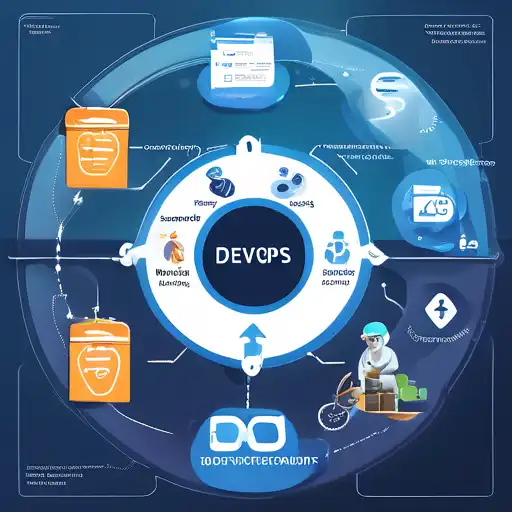Introduction to DevOps in Software Development
DevOps has revolutionized the way software is developed, deployed, and maintained. By bridging the gap between development and operations teams, DevOps practices ensure faster delivery, higher quality, and more reliable software products. This article explores how DevOps improves the software development lifecycle (SDLC) and why it's become an essential strategy for modern software development.
The Role of DevOps in the Software Development Lifecycle
DevOps integrates development and operations teams to streamline the SDLC, from planning and coding to deployment and monitoring. This integration fosters a culture of collaboration and continuous improvement, significantly reducing the time to market for new software features and updates.
Continuous Integration and Continuous Deployment (CI/CD)
One of the cornerstone practices of DevOps is the implementation of CI/CD pipelines. These automated processes allow developers to integrate code changes more frequently and reliably, ensuring that software can be deployed to production at any time. Learn more about CI/CD pipelines and how they benefit your development process.
Automation in DevOps
Automation is another critical aspect of DevOps, eliminating manual errors and speeding up the development process. From automated testing to infrastructure as code (IaC), DevOps leverages tools and practices that automate repetitive tasks, allowing teams to focus on innovation and quality.
Benefits of DevOps in Software Development
Adopting DevOps practices offers numerous benefits, including:
- Improved collaboration between teams
- Faster time to market
- Higher quality software products
- Increased efficiency and productivity
- Enhanced customer satisfaction
These advantages make DevOps an invaluable approach for businesses looking to stay competitive in the fast-paced world of software development.
Implementing DevOps in Your Organization
Transitioning to a DevOps culture requires careful planning and execution. Start by fostering a culture of collaboration and continuous learning. Invest in the right tools and technologies that support automation and CI/CD. Most importantly, measure your progress and continuously seek ways to improve your processes. Discover more about implementing DevOps in your organization.
Conclusion
DevOps is more than just a set of practices; it's a culture that promotes efficiency, quality, and collaboration in the software development lifecycle. By embracing DevOps, organizations can achieve faster delivery times, higher quality products, and greater customer satisfaction. The journey to DevOps may be challenging, but the rewards are well worth the effort.
